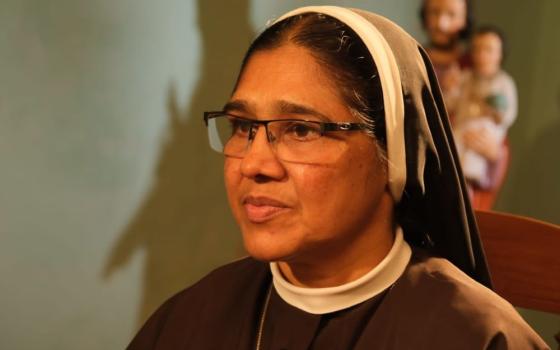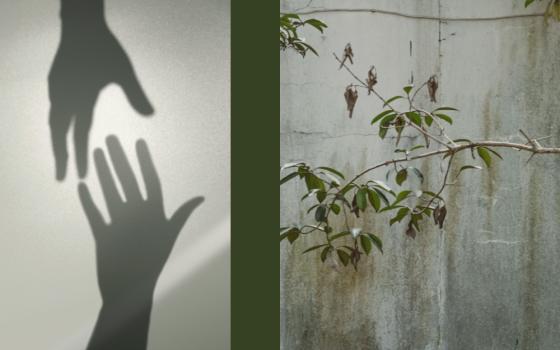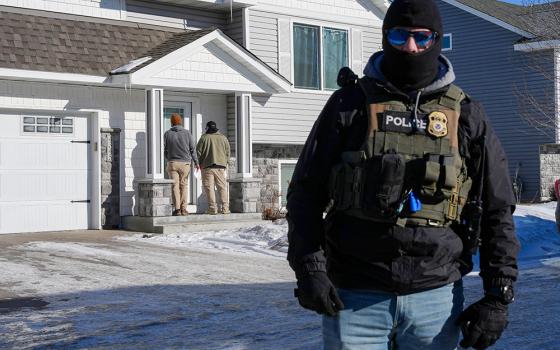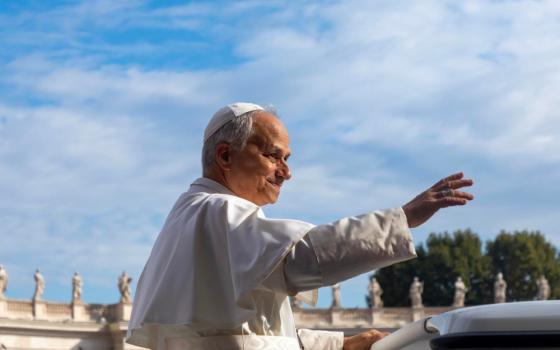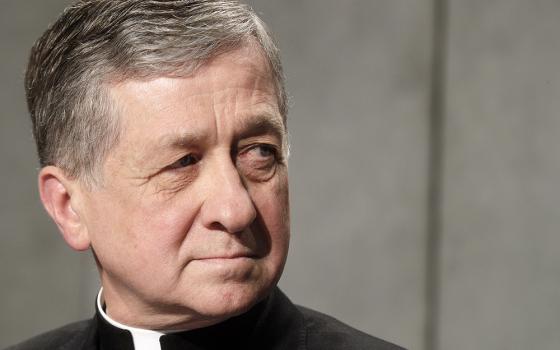People hold placards during a protest in Mumbai, India, April 12, 2023, against what they claim are attacks on the Christian community, churches and institutions across India. (OSV News/Reuters/Francis Mascarenhas)
Sr. Sheela Savari Muthu is yet to recover from the trauma after police in Madhya Pradesh charged her with violating the central Indian state's anti-conversion laws.
"It is very painful that our small gesture of holding a health camp for the children of domestic workers is painted as a religious conversion activity," the Holy Spirit nun told Global Sisters Report.
The police in Indore, Madhya Pradesh state's commercial capital, filed charges against Muthu and three others on Feb. 16, accusing them of violating the state's anti-conversion laws.
Anti-forced conversion laws exist in 12 of India's 28 states. They prohibit conversion or an attempt to convert a person from one religion to another through misrepresentation, use of threat or force, fraud, undue influence, coercion, enticement, marriage or other fraudulent means.
In the northern Indian state of Uttar Pradesh, the jail term for violating anti-conversion laws could be 20 years to life.
Hindus make up nearly 80% of India's population, and Christians account for 2.3%, according to the country's most recent census in 2011.
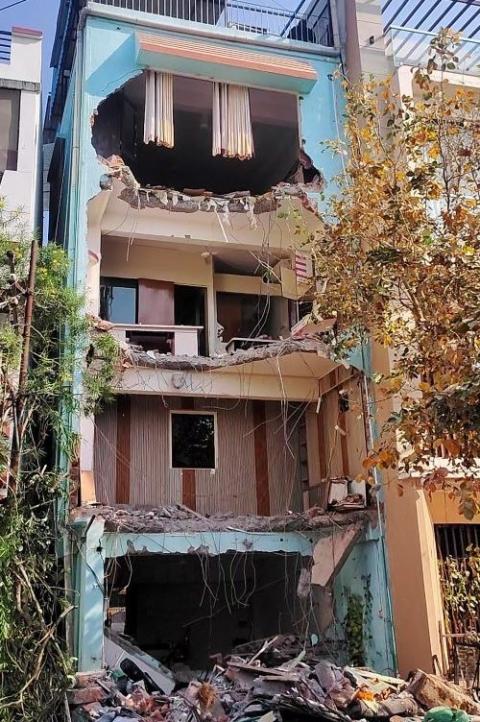
Holy Spirit Sr. Sheela Savari Muthu said municipal authorities demolished the four-story building that housed her office in the central Indian town of Indore. (Courtesy of Sheela Savari Muthu)
The Indore police acted against Muthu and others after right-wing activists supporting the Hindu-nationalist Bharatiya Janata Party accused them of converting children during an event at a public park to provide routine health checkups.
The police detained Muthu and her companions for nearly nine hours. Muthu said the Indore Municipal Corporation later demolished the four-story building housing her office, alleging encroachment.
Muthu said that municipal officials came with police and earth-moving machines and ignored their plea to await a high court decision on their plea for a stay.
"It was a planned operation," she said, adding that her congregation had bought the building 30 years ago from a retired Indian army official. "We never made any alteration to the building," she said.
Muthu said that any gesture to help others could now be interpreted as a religious conversion activity. "We can be punished. We have never faced such a situation until now," she said.
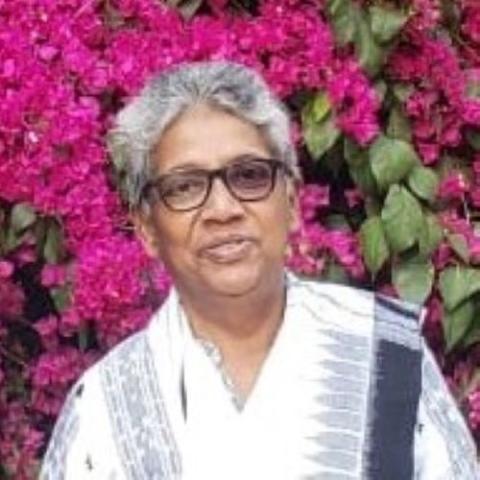
Presentation Sr. Elsa Muttathu, national secretary of the Conference of Religious India (Courtesy of Elsa Muttathu)
Catholic nuns are facing hostilities in other parts of India, too, said Sr. Elsa Muttathu, national secretary of the Conference of Religious India.
"We are living in a very difficult situation as everything we do can be termed as conversion activities," Muttathu, a Presentation nun, said.
Priests, lay Catholics and members of other Christian denominations are also being targeted, she said.
On April 1, the Catholic Bishops' Conference of India condemned Hindu radicals attacking a Catholic pilgrim group in Jabalpur in Madhya Pradesh. The radicals also assaulted the diocese's vicar general and the procurator.
"We don't know how to deal with this new phenomenon," Muttathu said. "We are used to working for the poor and the downtrodden through social work, education and health care."
Sr. Jaisa Antony, Holy Spirit congregation's central India provincial (Courtesy of Jaisa Antony)
Sr. Mary Scaria, a Supreme Court lawyer based in New Delhi, said Christian persecution has increased since 2014 when the Bharatiya Janata Party came to power in India. It also won general elections in 2019 and 2024.
On June 6, 2023, Sr. Vibha Kerketta, her mother and other relatives were arrested for organizing a thanksgiving Mass in Balachhapar, a village in the Diocese of Jashpur in Chhattisgarh.
Kerketta had returned home after professing her final vows with the Daughters of St. Anne, news reports said. Local Hindu nationalists called the Mass a conversion activity and charged the family under anti-conversion laws.
In January 2022, a 62-year-old nun spent 40 days in prison in the southern Indian state of Tamil Nadu after a girl in her boarding school died by suicide, Asia News reported. Hindu nationalist groups alleged that the 17-year-old took poison after being harassed and abused because her family refused to convert to Christianity.
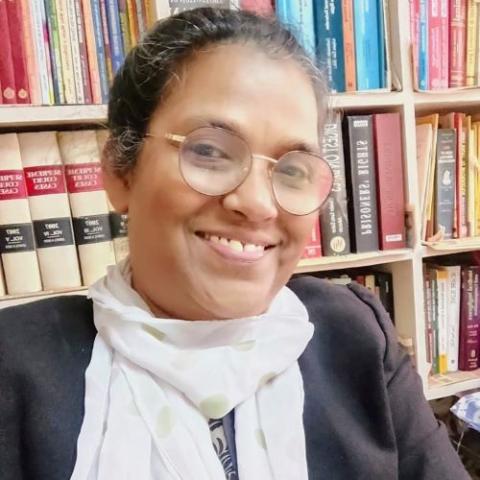
Sr. Mary Scaria, a lawyer and a member of the Sisters of Charity of Jesus Mary (Courtesy of Mary Scaria)
The Central Bureau of Investigation later reported that it had found no evidence to support the allegation.
"These incidents are clear indications that we need a lot of precaution before doing any missionary work, unlike in the past when we could do it fearlessly," said Sr. Jaisa Antony, Holy Spirit congregation's central India provincial.
"Article 25 of [the] Indian constitution allows every citizen to choose a religion of his or her choice, follow it and propagate it, but now a humanitarian act by a nun or a Christian could be interpreted as a conversion activity," said Scaria, a member of the Sisters of Charity of Jesus Mary.
She said the law blocks constitutional provisions for religious freedom.
"What is worse is that fringe elements that misuse these laws are given immunity to target nuns and Christians working among the poor," she said.
Advertisement
The United Christian Forum, a New Delhi-based ecumenical body that records persecution against Christians, said about two acts of Christian persecution occur daily. Fifty-five incidents were witnessed in January and 65 in February, according to its March report.
Muttathu said the Conference of Religious India has not addressed the anti-forced conversion law on the national level, but has dealt with each case locally.
She also said nuns need education about how these laws challenge their service to poor and marginalized people.
Scaria said some nuns have confided in her about their fear of traveling in religious dress.
Christian religious texts or the Bible, Scaria said, have become symbols of religious conversion and could lead to arrest. "This is a clear case of religious discrimination," she said.

